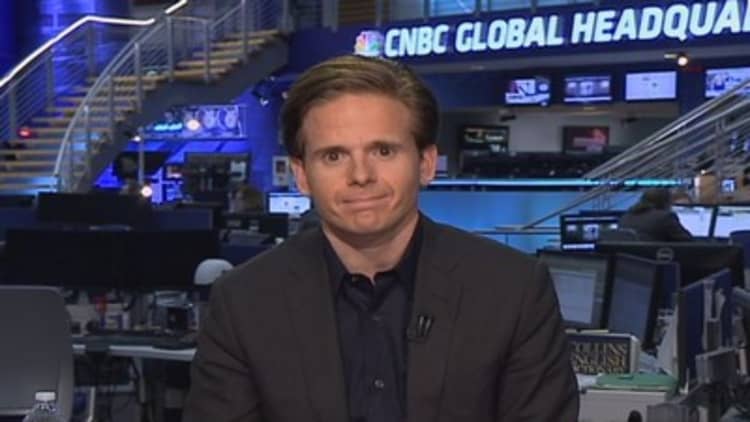
Coca-Cola investor Wintergreen Advisers stepped up its criticism of the company on Wednesday, arguing that the amount of shares issued to executives was excessive in light of the company's slow earnings growth.
"In a slow-growth business, this is going to make it harder to do well," Wintergreen CEO David Winters told CNBC Digital.
Winters said that while the company's underlying revenue and profit growth was modest, he had hoped to see earnings per share boosted by share buybacks. "It was our original investment thesis," he said.
Wintergreen, which owns 2.5 million shares of the company, also hosted an investor presentation Wednesday, when it said Coca-Cola was "hijacking" the company's shareholder buyback plan. "This may be one of the most outrageous grabs of shareholder money in the history of commerce," the company said.
The comments come several days after Wintergreen wrote a letter to Coca-Cola and Warren Buffett, the company's largest shareholder, criticizing the proposed executive compensation plan.
Winters said Buffett hasn't responded to him and Berkshire Hathaway, Buffett's firm, didn't respond to a request for comment from CNBC. Buffett's son Howard is on Coca-Cola's board of directors.
Coca-Cola has responded by saying its new plan doesn't differ materially from past plans and that executives will only be awarded options if they hit certain performance targets. The company declined to comment further on Winter's latest comments.
Read MoreBig dividend staple stocks show their dark side
The dispute focuses on Coca-Cola's 2014 equity plan, which includes up to 340 million new options to be issued to executives over four years. The 2008 plan, meanwhile, allowed the company to issue 280 million options.
But there's another number that Wintergreen has used to make its argument. In its latest proxy statement, Coca-Cola says that investors could face up to 14.2 percent dilution if the new plan is approved.
What may have caused some confusion is that the 14.2 percent number includes a large amount of options Coca-Cola has already issued but haven't been exercised. The additional 340 million shares would only increase the current share count by 7.7 percent.
Even so, share buybacks are a critical component of Coca-Cola's growth in earnings per share because they have helped the company reduce its share count over the years. When employees receive stock awards or exercise options, however, the impact of the buyback is reduced.
Take 2013. Coca-Cola purchased 121 million shares of stock, but the share count also was increased by 54 million shares related to option exercises or stock grants. As a result, the share count only fell by a net 67 million shares.
And while all investors would like to see Coca-Cola's share price rise, it could trigger more option exercises. The company issues options at a strike price equal to the market price at the time of issue. So when the stock price falls, as it has in the last 12 months, those options are less likely to be exercised.
Buybacks appear important for Coca-Cola given its current operating performance. The company's earnings before interest, taxes, depreciation and amortization grew just 1.8 percent in 2012, was flat in 2013, and is expected to rise 0.4 percent in 2014, according to FactSet.
While Coca-Cola's brand is considered one of the strongest in the world, the company recently has faced trouble in its mainstay U.S. soda market. Diet Coke, the company's second-best selling beverage after Coca-Cola, has suffered recently due to health concerns around artificial sweeteners. Unit sales of Diet Coke in the U.S. fell 6.8 percent in 2013, according to Beverage Digest.

